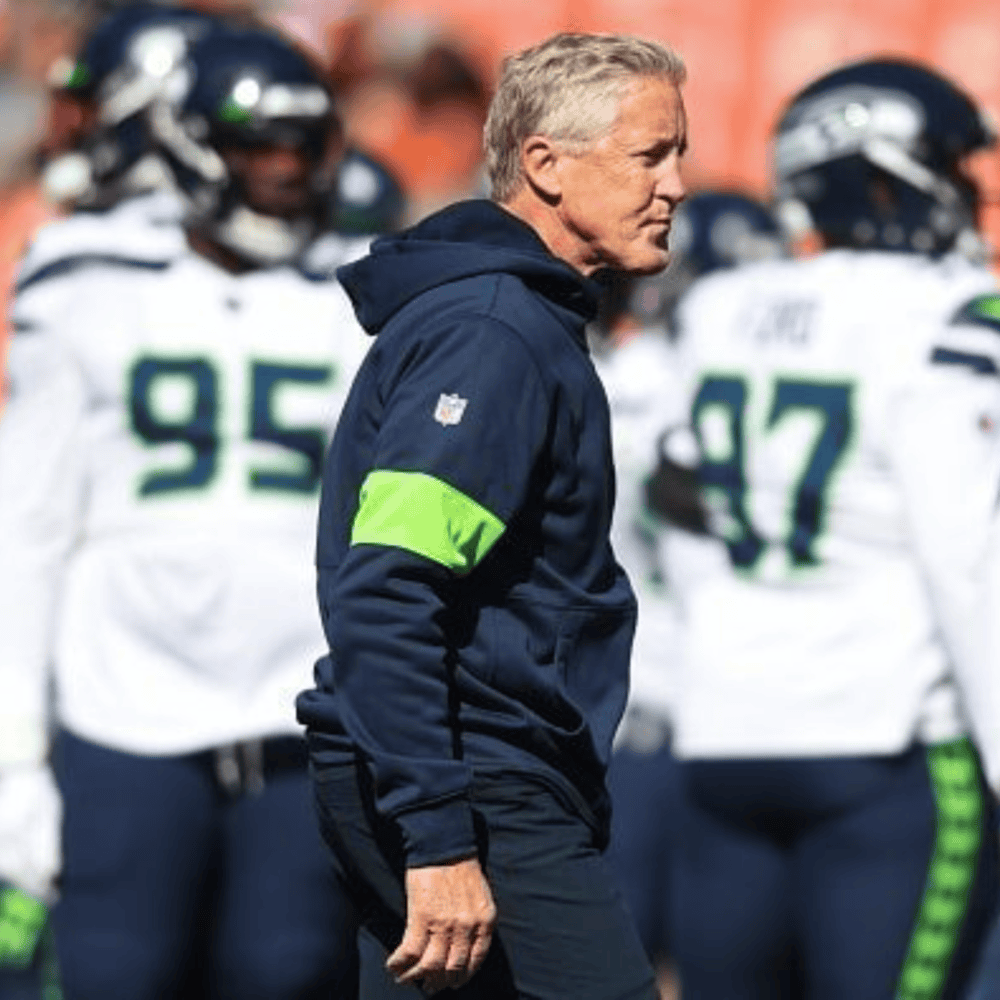Features
For these Seattle women in sports, it’s all about fair play
Three women who’ve spent a lifetime advocating for opportunity and equal access remain hopeful during the 50th anniversary of Title IX
By Linda Lowry & Rob Smith November 2, 2022
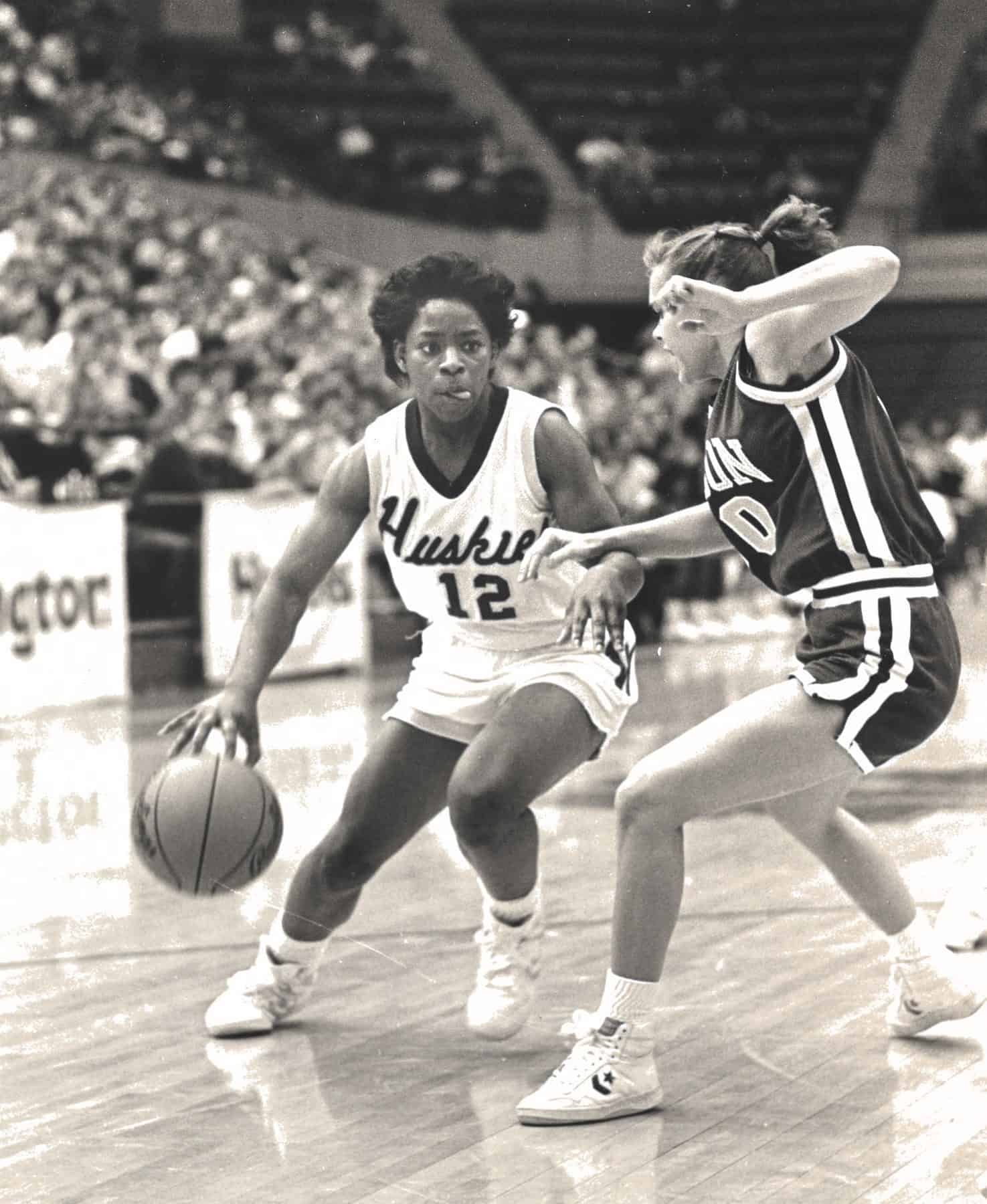
This article originally appeared in the November/December 2022 issue of Seattle magazine.
Virginia Gilder took off her clothes. Trish Bostrom filed a lawsuit. Back in the 1970s, these extraordinary pioneers took bold and decisive actions in a struggle for equality and access to opportunity, a battle that’s taken on new meaning in the wake of recent decisions by the United States Supreme Court.
On June 24, the Court overturned Roe v. Wade, ending constitutional rights to abortion that had been upheld for nearly half a century. Just one day earlier, the country celebrated the 50th anniversary of Title IX, the Civil Rights Act ensuring gender equality in federally funded educational and athletic programs.
The irony wasn’t lost on Gilder, an Olympic silver medalist rower who co-owns the WNBA’s Seattle Storm; on Bostrom, a former University of Washington and professional tennis player who is now a lawyer in Seattle; or on Ingrid Russell-Narcisse, a former basketball star at the University of Washington who now works as senior director of partnerships and activation at the Seattle Mariners, along with serving on the Big W Athletic Board Title IX Recognition Committee at UW.
“I am deeply concerned over the Supreme Court. I’m deeply concerned over women’s rights,” says Bostrom, who filed the lawsuit as an undergrad at the University of Washington over discriminatory practices between the women’s and men’s tennis programs. With the help of attorneys Don Cohen and Gary Gayton, the suit was settled out of court after university officials agreed to correct numerous discrepancies. “As women,” Bostrom adds, “we must stand up when our rights are being eroded.”
A few years later, Gilder and her Yale women’s rowing teammates, led by their captain, Chris Ernst, drew international headlines for protesting the lack of locker room facilities for the women’s crew team. They wrote “Title IX” on their bodies and went into Athletic Director Jodi Barnett’s office and took off their clothes as Ernst read a statement about the inequities in the men’s and women’s rowing programs.
“All hell broke loose” the next day, Gilder recalls.
“Basically, the athletic director dragged our coach into her office and said, ‘How come you can’t control your women?’” There was a little article in “The New York Times” and that was picked up by the AP. It went around the world. That was the equivalent of going viral in those years.”
Gilder, Bostrom and Russell-Narcisse reflect on the progress women have made over the past 50 years and the importance of remaining vigilant and involved after a tumultuous last several months.
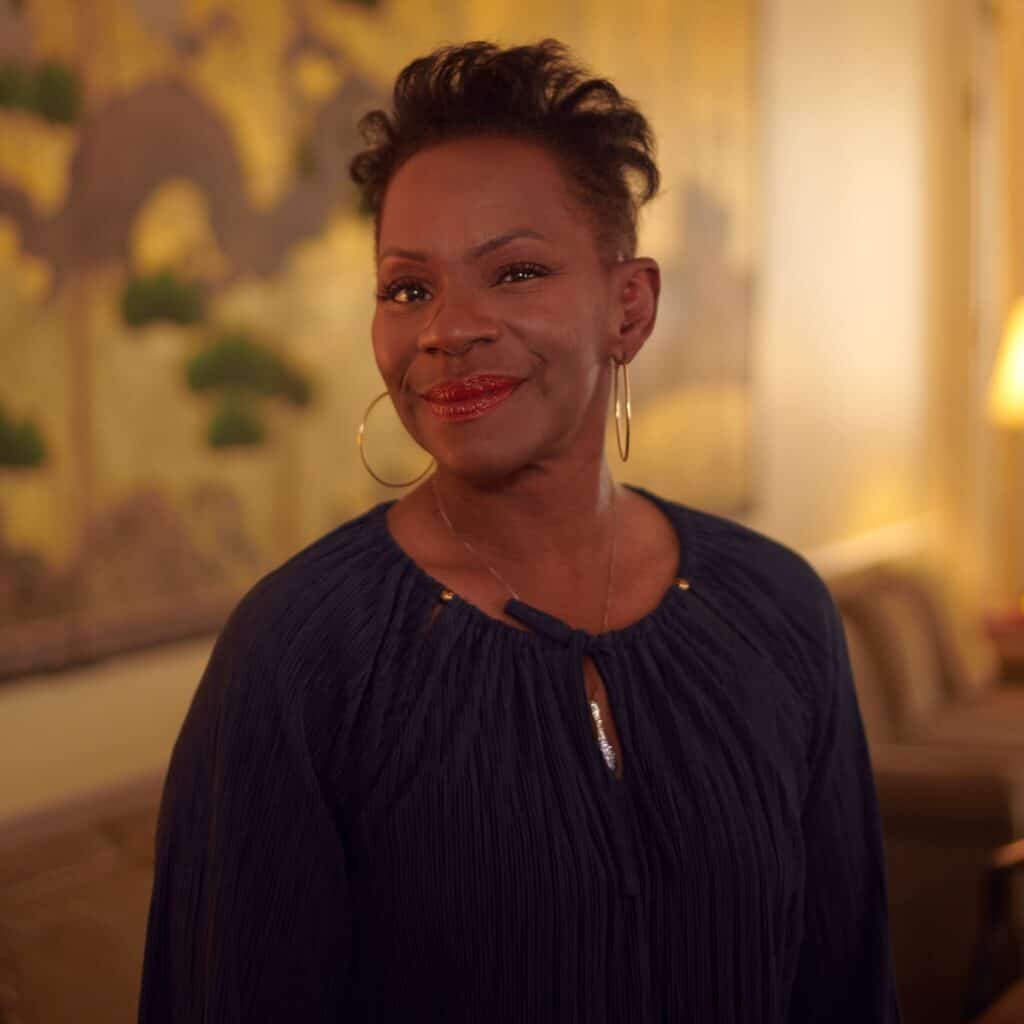
Former University of Washington basketball star Ingrid Russell-Narcisse says she’s thankful for the sacrifices made by women who came before her.
Meron Menghistab
How do you maintain focus in light of recent events that threaten progress?
Gilder: It is hard right now not to feel demoralized. Absolutely. But I only allow myself so long to feel down because at a certain point, you just have to get to work. Freedom is not free. And right now, we’re in a period of big setback and maybe it’s going to last 25 or 30 years, but that is not a reason to give up. It’s more like, how do you get creative?
Bostrom: When I talk to young women and young people, I am deeply concerned over the Supreme Court. I’m deeply concerned over women’s rights. As women, we must stand up when our rights are being eroded. It’s not a time to be down, go in the back room and be sad. We must stand up. We have to write Congress. We have to contribute our money to issues that we believe in. We have to go on marches. We have to be visible. We have to make sure that there is no further erosion of our rights. We need both men and women to stand up.
Russell-Narcisse: It doesn’t matter if it’s a struggle about race or questions about anything that’s happening in society. Continuing to have these conversations is critical. We’re all standing on someone’s shoulders. But it is a little disheartening to have to have these conversations all the time or keep fighting for what you know is fair, equitable and right.
Gilder: You think about civil rights. You think about marriage equality, where the Supreme Court is pointing the way for the culture to go, as opposed to the culture saying, “We want to go this way.” But who promised us that life was going to be easy? I actually like hard. It’s what makes life meaningful. Let other people do easy. I want to do hard.
How does the atmosphere now after the recent SCOTUS decisions compare to what you felt 50 years ago?
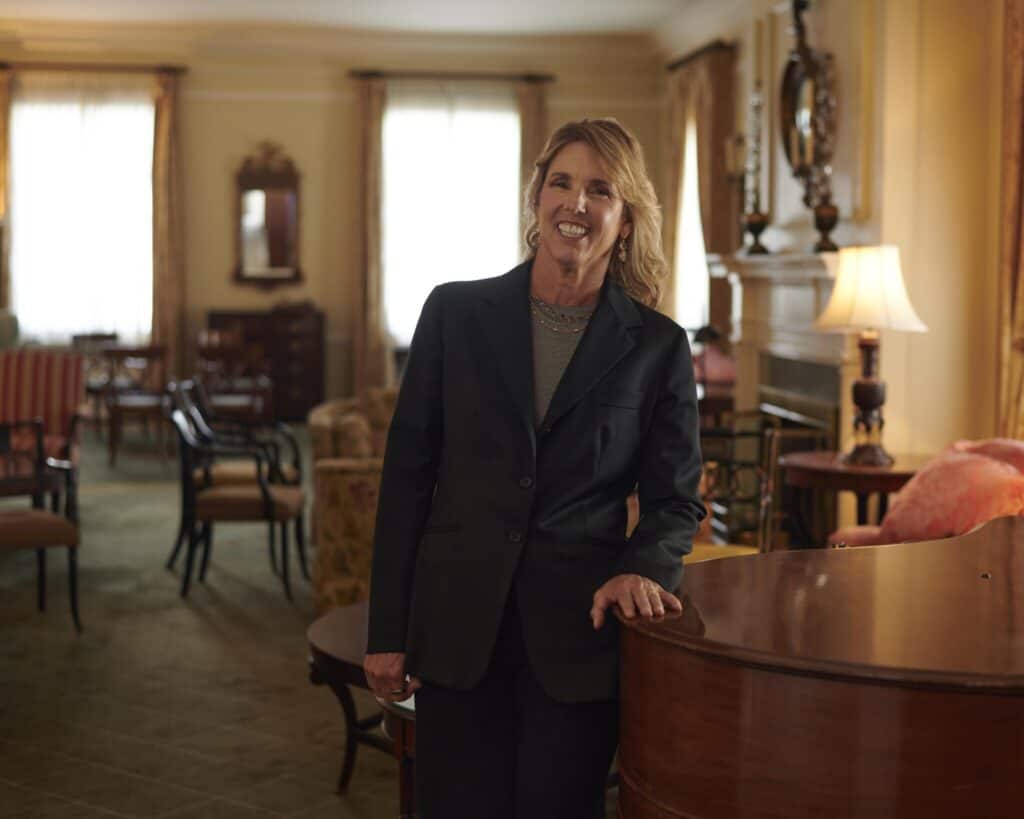
Virginia Gilder fought for women’s rights as a rower at Yale before becoming an Olympic silver medalist. She is now a co-owner of the WNBA’s Seattle Storm.
Meron Menghistab
Gilder: It’s really hard to answer that question because I’m 45 years older and I look at life very differently. But if you look to American history, this is just more of the same. We have a lot of progress we need to make. But part of that means that there is still a huge struggle. There’s not agreement about what I view are fundamental values: the importance of equality and access to opportunity.
Bostrom: Over these last 50 years of constant attacks, Congress has still upheld Title IX. They haven’t destroyed it. My hope is regardless of how horrible the attacks will be on Title IX, that there will still be still enough wise people to keep it. We must tell young athletes that you must speak out. We are still fighting. Absolutely. Since Title IX passed in 1972, there have been consistent attacks.
Gilder: One thing that’s shifted in the last 50 years is all the lying in the culture, especially in politics. And that has put our country at such risk.
Describe your activism at such a young age.
Bostrom: There were great differences between the men’s and women’s tennis programs. The men had a great coach who played international tennis. We had a graduate student. The men had scholarships. We had no scholarships. The men had equipment. We had no equipment. We had to buy our own. The men had uniforms. We had no uniforms. The men received academic credit for participating in athletics. We did not. The men, if they qualified, were sent to the national collegiate championships. I qualified as a freshman, but the university wouldn’t send me. There were great discrepancies between the programs. I knew it was wrong. It was discriminatory.
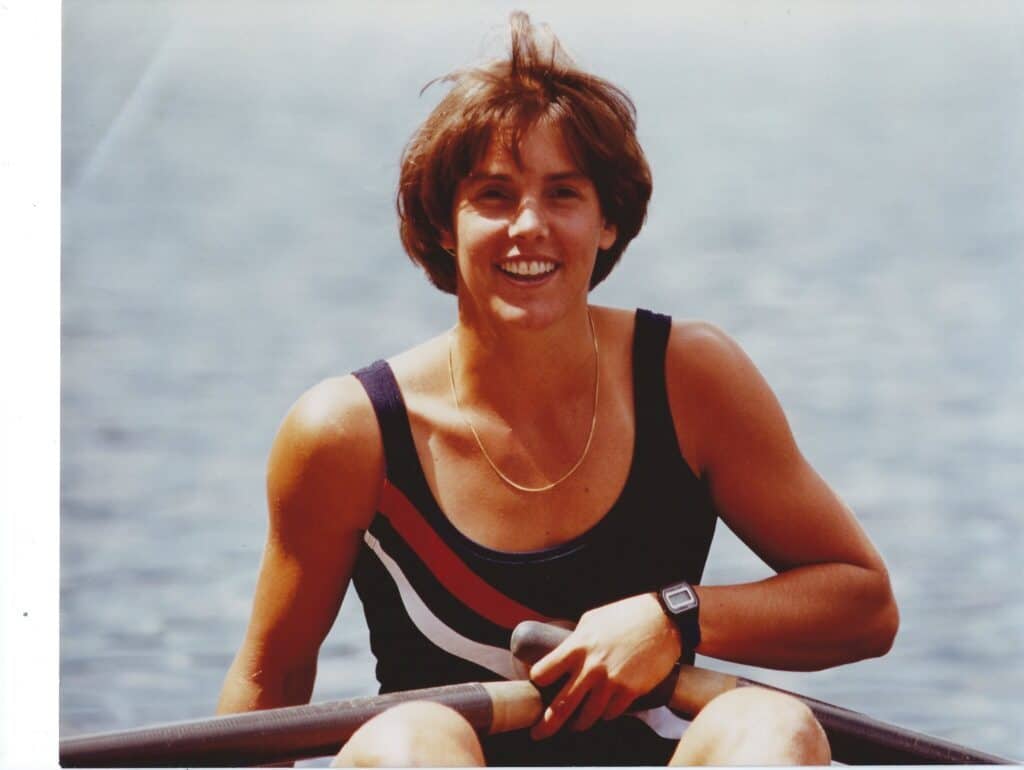
Virginia Gilder as a young rower.
Ginny Gilder
Gilder: I was right on the other side of Title IX. I started as a freshman in college in 1975. I had no idea about Title IX. I became a rower and discovered in the winter when we finally got to go and train out of that boathouse, that 12 miles from campus, there were no facilities. There were no locker room facilities for the women. And from the beginning, my captain and another woman, both of whom were trying out for the 1976 Olympic team, were outraged about this, and started educating us, the younger class women.
Bostrom: We had a pretrial hearing. There were about 15 men in this long room from UW, all very serious. What we wanted were equitable athletic opportunities for women and the right for me to try out. And at the end of that hearing, one of the vice presidents said, “What are you going to do to us? What can you do to us if we don’t give you what you want?” My lawyer, Don Cohen, said we’re going to bring an injunction against the University of Washington to bar it from participating in any NCAA athletic competitions, including football. Ooh, the room went quiet. The university came back two weeks later and said, “Trish, we were wrong. You were right. The women’s programs are horribly underfunded.”
Gilder: We would go to the boathouse at the same time as the men. We all took this bus together, right? School buses, 12-mile ride, 20 minutes. And once we got there, we would go dress in our sweats because we didn’t have any place to change. The men would go in their regular clothes and change. We’d all go work out separately. But we’d all come back at the same time, roughly, and they’d go and shower. We’d go sit on the bus for 25 minutes waiting for them. It was in those precious half-hour segments that we got educated by our captain. They built an addition to the boathouse that next year. So, we got what we wanted and kind of went on our merry way.
Bostrom: The head of women’s athletics for the University of Washington brought me into her office and said, “Trish, do not do what you are doing. Do not rock the boat. Stop what you’re doing.” And I can remember leaving that office thinking she doesn’t get it. She just doesn’t get it.
Russell-Narcisse: By the time I got to the University of Washington, it was coach Chris Gobrecht’s first year and she pushed for equality as far as our training conditions were concerned. When I first walked in there, we had a little separate training facility, but by the time we were partway through our season, we were training with the guys and all using the same equipment.
Did you realize the impact you would have at the time?
Gilder: We were trying to correct this inequity. And I don’t think I was aware enough of the outside world to think about the impact that I could make as part of this group. And that really started showing up 20 years afterward as people started talking about this story and how important it had been.
Bostrom: No. I realized that there was injustice and discrimination. It was not right. And it needed to be rectified. And then suddenly Title IX passed, and universities were forced by federal law if they were receiving federal funds to have equitable athletic opportunities for girls and for women. They could no longer say no.
Gilder: It wasn’t like we were baring our chests to save the world. We were really irritated about what was happening here. We thought it was unfair. We were all paying for the same education and we’re not getting the same education.
Bostrom: It dramatically affected athletics, but Title IX also burst open the doors for women to the medical schools, the law schools, the computer science courses, the physics lab, the chemistry labs, all of those classes from which women were excluded. They were truly burst wide open.
What’s the most important advice you give to young people?
Gilder: It really is young people who are going to be very badly affected by what’s just happened. This is a 25- to 30-year problem that has just been introduced to the country. You’ve had legalized abortion for 50 years. People accept that the way they accept access to sports for girls. It’s just part of the culture.
Russell-Narcisse: Be fearless. Find your voice. Get an ally. If you’ve got a goal in mind, don’t be afraid. Oftentimes, we’re going to fail, and that failure is where your growth comes from. But be your own captain.
Gilder: Without young people, the culture would never change. Don’t let anyone decide fwho you’re going to be. Most people give up too soon. Don’t be one of those. I’m afraid all the time. What saves me is that I have partners who are not afraid when I’m afraid. So, find your people.
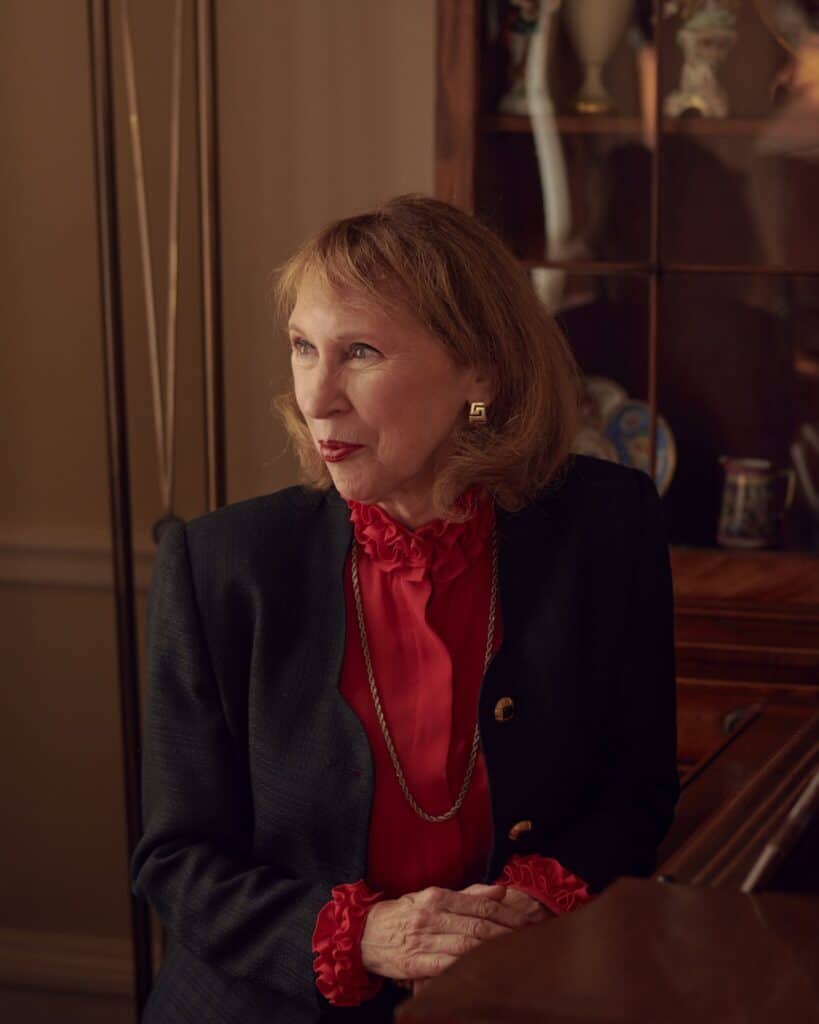
Former professional tennis player Trish Bostrom sued the University of Washington as an undergrad because of discrepancies between the men’s and women’s tennis programs.
Meron Menghistab
Bostrom: Dream big and set an incredible high goal, and then set a series of secondary goals. I never met my high goal of being No. 1 in the world but because I had this extraordinarily high goal, I made all of my secondary goals. Just keep focusing on your goal. Just be focused. Ask people to be a mentor. There’s a special place in hell for any woman who doesn’t help another woman.
Russell-Narcisse: We talk all the time about what sports can do for young girls and their self-esteem and helping them find their voice, which oftentimes so many of us struggle with.
Gilder: I have a daughter who’s 30 now, and I’m always talking to her about opportunity. Consider the possibility that you have some responsibility. Don’t focus on the idea that you’re just one person. Focus on the idea that you actually have power. There is access to social media. There are so many organizations working on all kinds of issues where you can find your people. I think it can be much more frightening if you’re trying to do something alone than if you find like-minded people and you create a group.
Russell-Narcisse: And young people do have that childlike ability to question. There is no fear because they’re not aware of all the repercussions. That ability to question is what pushes us and moves us farther.
Gilder: Look what happened in 2020. The WNBA players together came out against what the Atlanta Dream owner was doing (the owner, Republican U.S. Sen. Kelly Loeffler, had denounced the Black Lives Matter movement). They really changed the composition of the U.S. Senate because of that Georgia race (Democrat Raphael Warnock defeated Loeffler that fall). You can change the flow, but you have to be willing to take some risk to do so. That whole idea is very important.
How important was the famous Billie Jean King vs. Bobby Riggs tennis match in 1973 to the cause of equal rights?
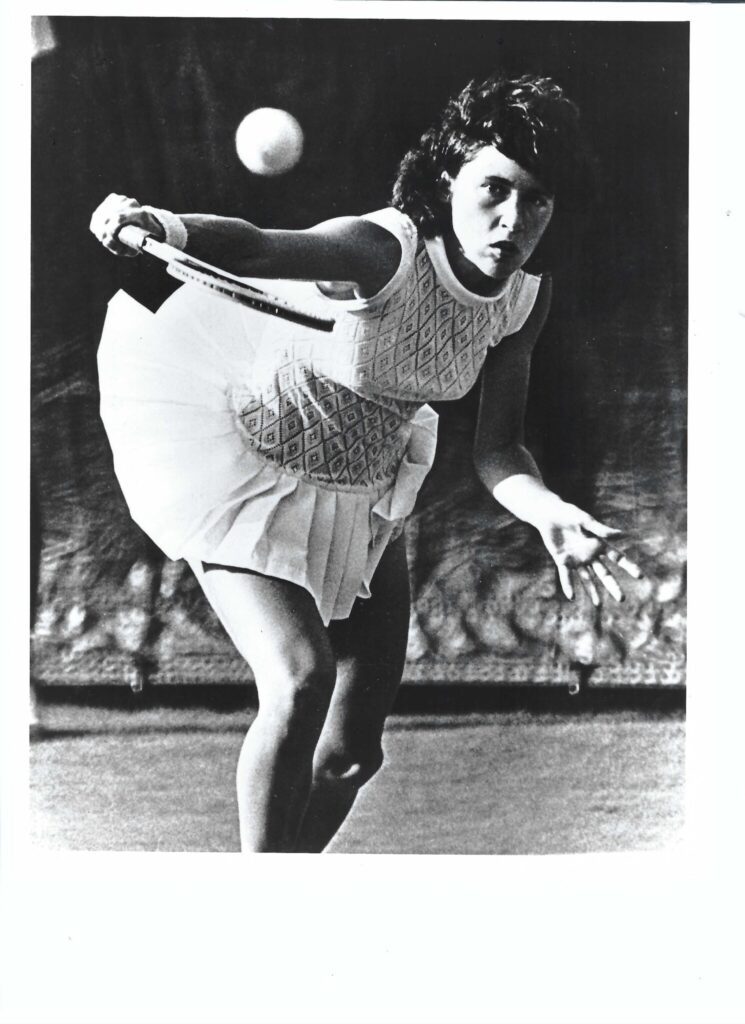
Trish Bostrom during her younger tennis years.
Trish Bostrom
Bostrom: I was there. It was huge. Billie Jean understood the magnitude of that match. Women’s tennis boomed. After that we could play all over the world. It affected women generally in other areas of life. Thank goodness she won. That took real courage.
Russell-Narcisse: For Billie Jean to have that kind of weight and pressure with knowing what was at stake, wow. She took on that responsibility knowing that she was playing not just for herself, but for the hordes of women who were supporting her and relying on her. It’s amazing to me.
Gilder: It was a cultural moment that elevated Billie Jean into a position that she really embraced her whole career, as an advocate for access to opportunity for girls and women. She became kind of an unofficial leader and that proved tremendously important for the country.
You’ve all inspired generations of women. Who inspired you?
Bostrom: My parents. I was lucky. I call them pre-Title IX parents. They told me I could do whatever I wanted and said, “We will help you. Whatever you want.”
Gilder: The captain of my crew team my freshman year at Yale, Chris Ernst. She was a two-time Olympian and world champion. I don’t think I’ve ever met someone as feisty as she was. And there I was at age 17 and if she would’ve said, “Scale that mountain,” I would have scaled that mountain. She was just so charismatic in a way that I don’t think she really appreciates to this day. She just wouldn’t take no for an answer. It wasn’t just the sports part. It was how tough she was. We would go into the weight room at Yale to lift and the heavyweight men would look at us and say we didn’t belong, and she would say, “Last I checked, I pay the same tuition you do.” I mean, she was gutsy.
Russell-Narcisse: There’s so many. From an athletic perspective, Wilma Rudolph (an Olympic sprinting champion). She overcame and she overcame, and she overcame. I wanted to do what she did and continue to test limits and push myself. And when people tell me I can’t, well, great. I can.
Co-author Linda Lowry benefited from Title IX as a college soccer player at Chapman University in Orange, Calif. The interview was held at the Women’s University Club in Seattle, which was funded by a group of college-educated women in 1914.




